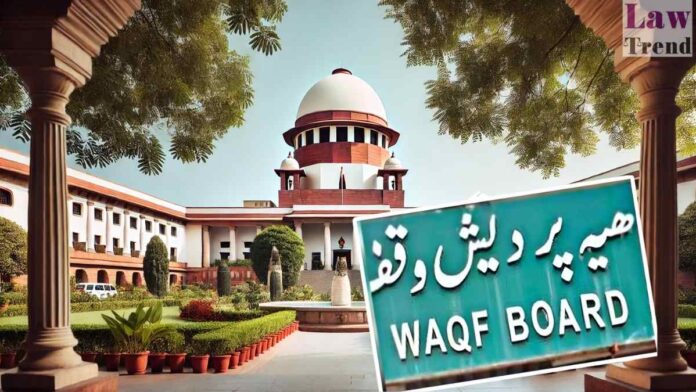The Supreme Court on Monday directed that the batch of petitions challenging the constitutional validity of the Waqf (Amendment) Act, 2025, will be heard by a Bench headed by Justice B.R. Gavai instead of the current Bench led by Chief Justice of India Sanjiv Khanna. The shift comes as CJI Khanna is due to demit office on May 13, and the matter, requiring an elaborate hearing, cannot be concluded in the limited time remaining.
The matter was listed before a Bench comprising CJI Sanjiv Khanna, Justice P.V. Sanjay Kumar, and Justice K.V. Viswanathan. Taking note of the volume of submissions and the nature of the challenge, the CJI observed:
“We have gone through the counter and rejoinder. Yes, some points have been raised on registration and some figures which are disputed by petitioners. It needs to be dealt with… I do not want to reserve any judgment or order even at the interim stage. This matter has to be heard on any reasonable day. It will not be before me.”
The CJI then directed the Registry to list the matter before a Bench led by Justice B.R. Gavai on May 14, 2025, for consideration of both interim and final relief.
Solicitor General Tushar Mehta, representing the Union, remarked, “We would have loved to pursue your lordship as every contention has an answer. But we cannot embarrass you because there is no time.” He added on a lighter note, “It is painful to remind your lordship [about the retirement],” to which CJI Khanna responded, “No, no I am looking forward to it.”
Background: Petitions Against the 2025 Amendment
The petitions challenge the Waqf (Amendment) Act, 2025, which was passed by the Lok Sabha on April 3 and by the Rajya Sabha on April 4. It received Presidential assent on April 5. The legislation brings significant changes to the Waqf Act, 1995, particularly targeting the regulation of waqf properties—assets dedicated under Islamic law for religious or charitable use.
Petitions have been filed by several individuals and public representatives, including Congress MP Mohammad Jawed and AIMIM MP Asaduddin Owaisi, who contend that the amendments unfairly target the Muslim community. They argue the new law interferes with Muslims’ constitutionally guaranteed rights under Article 26, which protects the management of religious affairs.
The core grievance centres around the removal of the concept of “waqf by user” from the statutory definition of waqf. Petitioners argue that this would strip religious and charitable properties—such as mosques, graveyards, and dargahs, many of which have no formal waqf deeds—of their religious character and legal protection.
Centre’s Defence of the Amendment
In response, the Union government has defended the legislation, stating it was enacted to curb misuse of waqf provisions for encroachments on private and government lands. The Centre noted a 116% rise in “auqaf area” after the 2013 amendment and claimed that waqf claims were increasingly being made over public and private properties without legal backing.
Defending the abolition of “waqf by user”, the Centre argued that registration of waqf has been mandatory since 1923, and the amendment does not restrict anyone’s right to dedicate property to God. Instead, it standardises the process by requiring formal registration.
Regarding the inclusion of non-Muslims in the Central Waqf Council and State Waqf Boards, the Centre submitted that these bodies perform secular advisory and supervisory functions. The inclusion is in a “microscopic minority,” aimed at promoting inclusivity and does not infringe the rights under Article 26.
States Supporting the Amendment
Six BJP-ruled States—Haryana, Maharashtra, Madhya Pradesh, Rajasthan, Chhattisgarh, and Assam—have filed intervention applications supporting the amendment. These States argue that any challenge to the Amendment Act would directly impact their governance over waqf properties and efforts to prevent encroachments.
Next Hearing on May 14
The matter will now be taken up on May 14, 2025, by a Bench led by Justice B.R. Gavai, which will consider both interim relief and the final constitutional challenge. The outcome of this matter is likely to have wide implications on the governance of waqf properties and the rights of minority religious communities in India.




